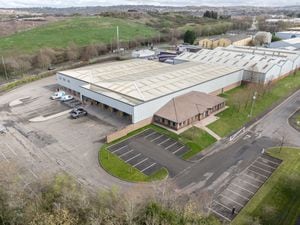West Midlands firms face battle to find new staff
Huge recruitment problems persist for companies across the West Midlands, a new Chambers of Commerce economic report has revealed.

A survey found 64 per cent of businesses said they were now struggling to find new staff, an increase of 14 percentage points since the start of last year.
The West Midlands economic snapshot for the last quarter of 2018 was produced by Greater Birmingham Chambers of Commerce (GBCC) on behalf of the Black Country Chamber of Commerce and Coventry and Warwickshire Chamber of Commerce.
The region’s manufacturing sector was worst hit with 74 per cent – a three point increase on the previous quarter – struggling to recruit while the service sector experienced a seven point increase to 60 per cent.
Only 21 per cent of all companies across the region expected their international output to go up over the next three months – a three point decrease compared to the previous quarter.
Also 65 per cent said their overseas orders stayed the same for the last three months of 2018 whereas 14 per cent of all businesses expected them to fall in the upcoming months.
However, business confidence remained high with 57 per cent of firms expecting their profits to increase in the next 12 months.
The largest proportion of firms expecting a rise in profitability were based in the Black Country (71 per cent).
The overall balance score for turnover projections was slightly higher for firms operating across the region.
A score of 78 was based on 63 per cent of the total number of companies surveyed expecting their turnover to go up while only eight per cent envisaged a decrease in turnover levels.
Paul Faulkner, chief executive of the GBCC, said: “It is clear that the number of firms that have faced recruitment difficulties has increased noticeably over the last 12 months.
“It is disappointing to see almost three quarters of manufacturers surveyed suffering problems in attempting to find staff – with this particular trend most apparent in Greater Birmingham.
“In a similar fashion, almost two-thirds of service firms faced complications in adding to their headcount.”
Mr Faulkner said analysis from the Office for National Statistics revealed that the West Midlands has seen a drop in regional employment levels over the last six months.
“We shouldn’t lose sight of the great strides that have been made in tackling pockets of structural unemployment over the last three years,” he added.
Corin Crane, chief executive of the BCCC, said: “The latest results suggest fairly solid export conditions here in the West Midlands.
“However, the data from Q3 does show a slight downturn for firms reporting increased export sales, from 26 per cent in Q3 2018 to 24 per cent in Q4, and a marginal rise in firms reporting decreased export sales, from 11 per cent in Q3, up to 13 per cent in Q4.
“From a policy perspective, exporting businesses have a lot to deal with at present. Continued Brexit uncertainty means that the current landscape for exporters is complex.
“Fewer companies across the West Midlands expect their international output to go up over the next three months (21 per cent) than this time last quarter (24 per cent).
“The Government must act quickly to end uncertainty around Brexit.
“West Midlands businesses remain, inexcusably, in the dark about what a future trading relationship will look like.
“Politicised discussions around Norwegian, Canadian or Swiss models do nothing to help West Midlands manufacturers, hauliers or service sector exporters counteract the challenges they currently face.
“Alarmingly, as March 29 approaches, a shocking amount of questions remain unanswered, from customs, and intellectual property to trade agreements with third countries.”





